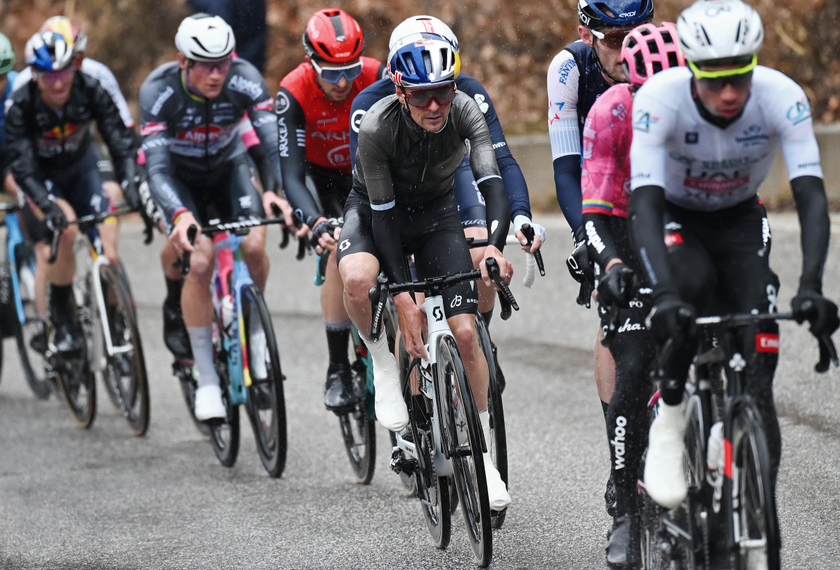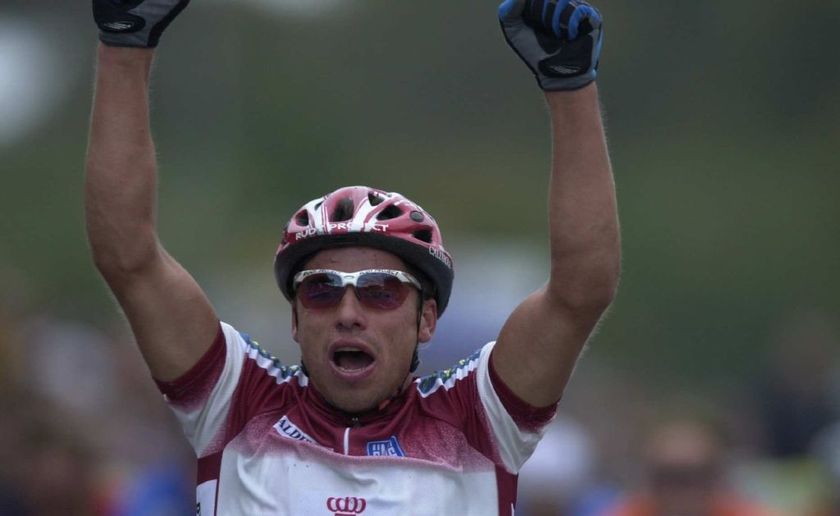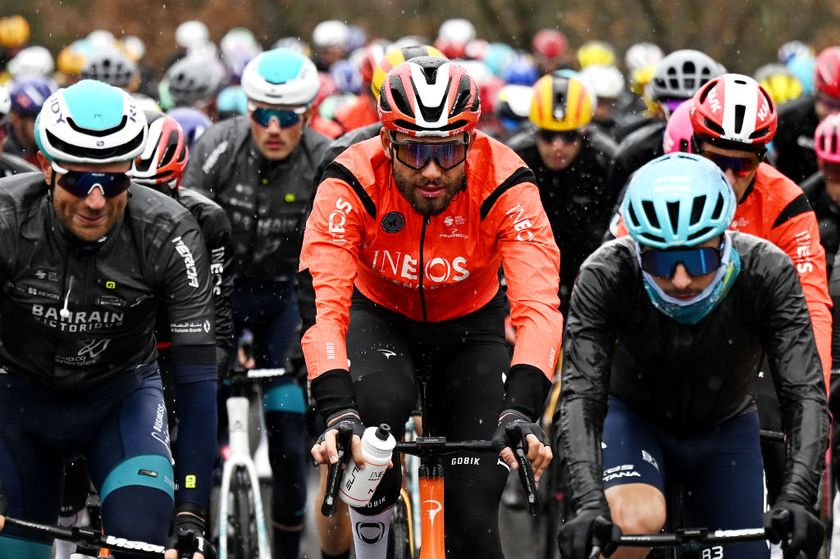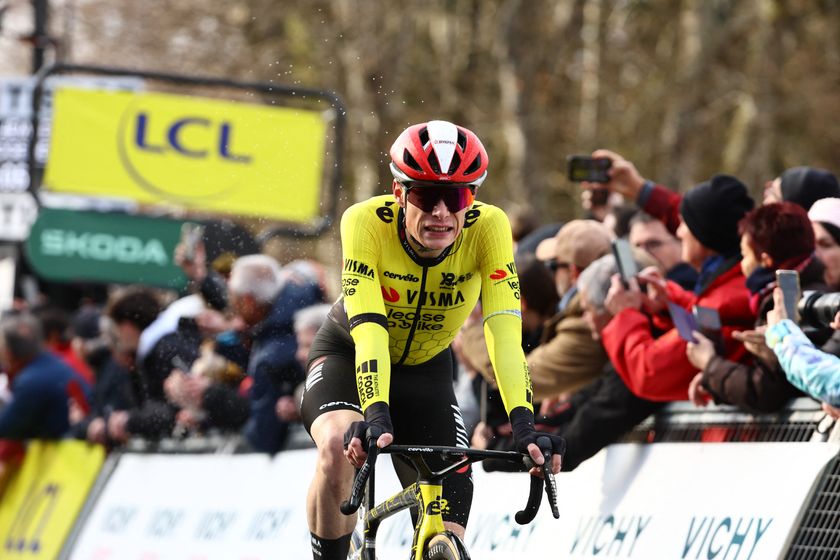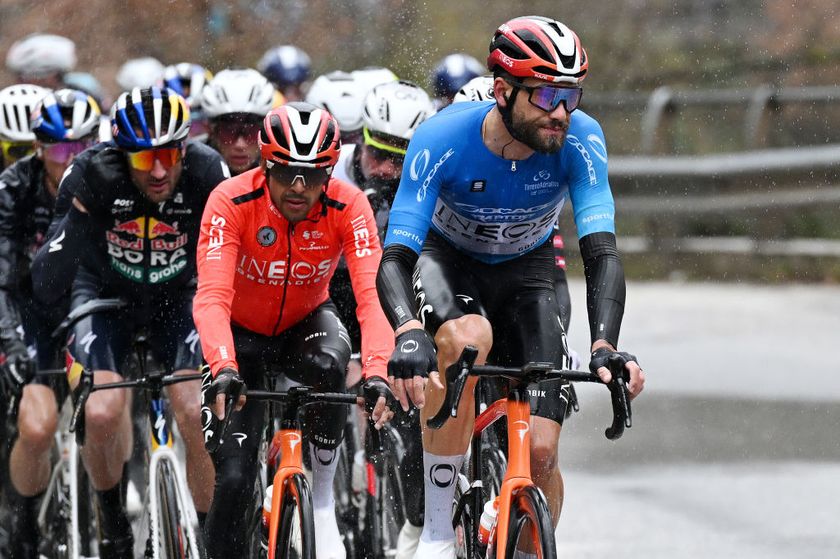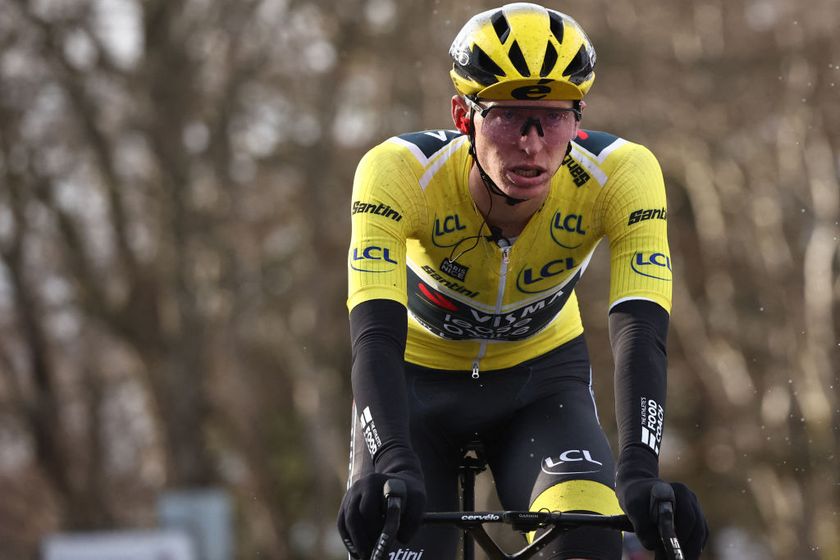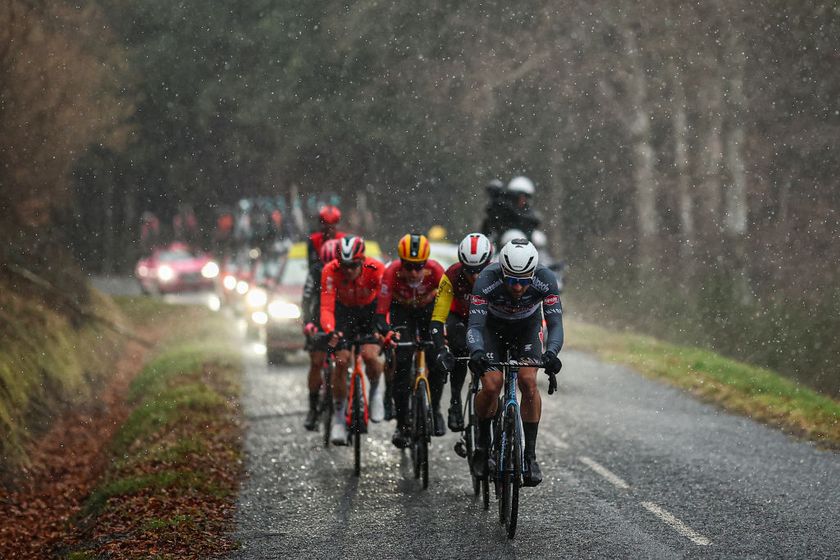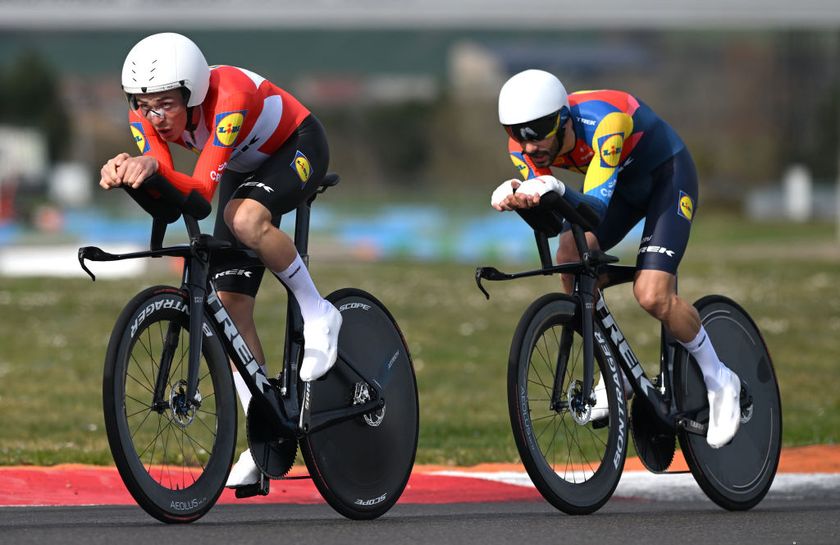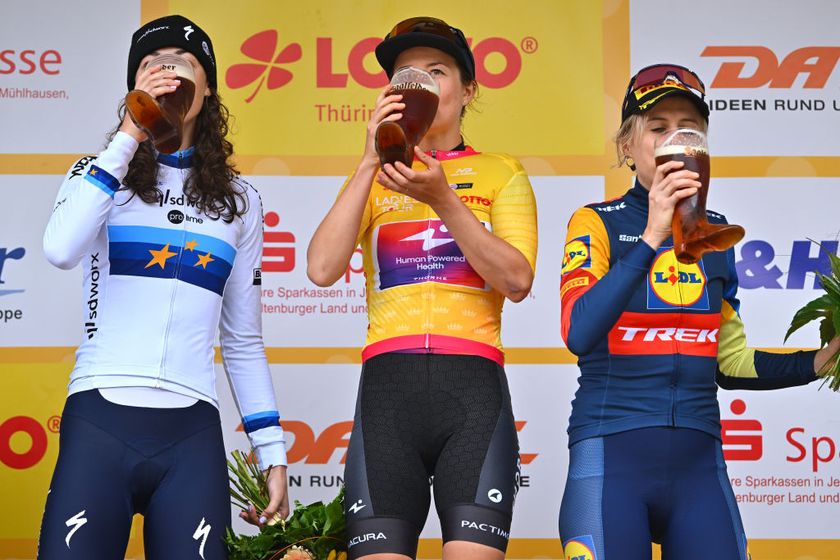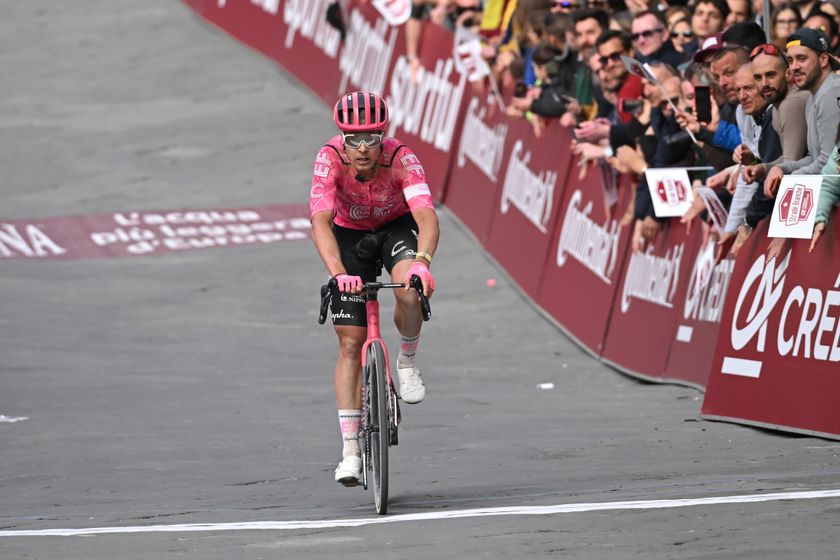Nuyens finds pain and glory in Flanders
Team switch to Riis provides answer to criticism
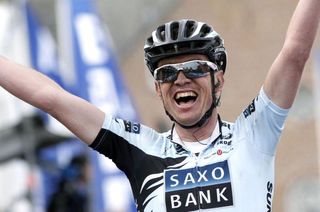
Nick Nuyens' triumph in a spectacular edition of the Tour of Flanders may have been somewhat unexpected, but it confirmed the promise he showed here three years ago and makes up for years of struggle to back up his second place performance of 2008.
The 30-year-old Belgian has faced harsh criticism in the past few years, but the faith of his new manager Bjarne Riis, the support of his Saxo Bank Sungard team and a Spring spent far from home provided him the strength he needed to overpower the pre-race favourites, Fabian Cancellara (Leopard-Trek) and Sylvian Chavanel (Quick-Step), in a three-man sprint.
Nuyens, who moved to Saxo Bank Sungard from the Dutch Rabobank team has languished in the Spring Classics over the past few years, with fans and pundits faulting him for not attacking more.
But he says it's all a matter of interpretation. "Yesterday [Baden] Cooke told me he was happy when I joined the team because to him I was an attacking rider. It's what you make of it. I think you have to work with the weapons you have," Nuyens said.
When Nuyens finished as runner-up behind solo winner Stijn Devolder in the Ronde in 2008, he seemed poised to join the short list of Classics giants. The result backed up wins in Paris-Brussel (2004), GP Wallonie (2004, 2005 and later 2009), Omloop Het Volk (2005), Kuurne-Brussel-Kuurne (2006).
Until today, a Classic victory has eluded Nuyens, but this year a win in Dwars door Vlaanderen presaged his new found success.
"It's not revenge for all the criticism I received. Every year I won some race but I didn't expect to win two nice races this year like these; it's really special. Winning the Ronde is a big difference. The semi-classics are important too, but maybe more in Belgium. On the other hand, any rider in the peloton wants to win them," Nuyens said.
Get The Leadout Newsletter
The latest race content, interviews, features, reviews and expert buying guides, direct to your inbox!
Nuyens recalled a dismal 2010 Ronde where he failed to finish, calling his decision to quit the race after 200km, "one of the hardest moments in my career".
"Today I thought about that same place - the cobbles just ahead of Mater - when we passed there today. It was easier now because I was riding near the front of the race," Nuyens said.
That new mentality shows the influence of Riis. "It's difficult to explain what he does, but it started right when he contacted me the first time. There was no discussion about the money. He wanted me to work with him. During the training camps there are the small words that gave me confidence."
A change to his early season schedule also proved helpful. "I was a lot in foreign countries for the weather because my body reacts well in the sun. I didn't do the [Belgian] opening weekend to make sure I would be ready for this time of the year, to be extra fresh in these demanding races," Nuyens said
"It's like a child that wants ice cream. It made me long to race in Belgium. When you like a race it's easier to do it, and I like ice cream," Nuyens smiled. "I just saw Riis and he said he couldn't believe I pulled it off."
Overcoming obstacles
His Tour of Flanders wasn't without its struggles, however, and he admitted he didn't have the best day. "I was always behind crashes and crashed myself too," Nuyens said.
As the battle for position began at the Knokteberg with more than 90km to go, Nuyens was on the ground in the back. "We were probably riding only 7km/h. I was trying to make up spots but I ended up next to the road and I wanted to hop out. I didn't get my foot out. I wasn't hurt but it's better not to crash. I thought it was over. It happened because something was wrong with the position of my cleats. For about 70km I have ridden with the problem but there was just no time to fix it. I told myself to deal with it," Nuyens said.
Another difficult moment came when Chavanel attacked on the Oude Kwaremont while Nuyens was struggling at the back of the peloton. "Someone hit a pole and I was riding outside the top-100; then it's hard. The motto then was: never give up. Luckily Stijn Devolder was behind at the Kwaremont too. He did a lot of work. We almost made it back up to the front at the Koppenberg," Nuyens said.
While there was still action going on several groups returned to the main chase group, including Nuyens. On the cobbles of the Haaghoek Boonen accelerated but he ran into a counter-attack from Cancellara on the Leberg. "I thought: uh-oh. I didn't expect it because it was the easiest part of the finale. Normally it was too far to go alone but if he won he would've been called a genius," Nuyens said.
When the race came back together on the Kapelmuur and then the Bosberg, Nuyens said, "From there anybody could win. That's the funny part of cycling in such a situation."
The attacks started flying around with Ballan, Nuyens himself, Thomas, Flecha and Langeveld seizing their chances. It was impossible to mark every move, but when Cancellara attacked Nuyens was aware that it was the winning move. "They say I'm good at this. Everybody was on their limit when he attacked. I looked back on knew they were watching Boonen. It was tight to come back on them... it took me 100m to close the gap of 5m," Nuyens said.
Once up there with early attackers Chavanel and Cancellara it was up to Nuyens to clinch the deal in the sprint. "Before the race I talked with my dad about sprinting against Cancellara and he was confident that I was faster, but I didn't know about Chavanel. The last 50m were very long.
"I told myself to stay near the barriers and hold your line. I shifted up and felt I had some dash left," Nuyens said about how he brought home the win in Meerbeke.
